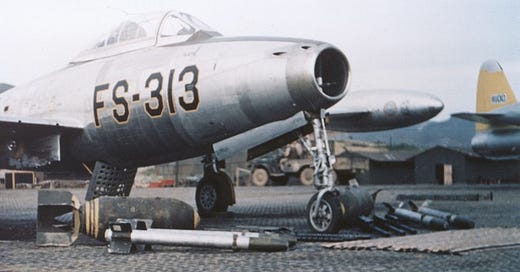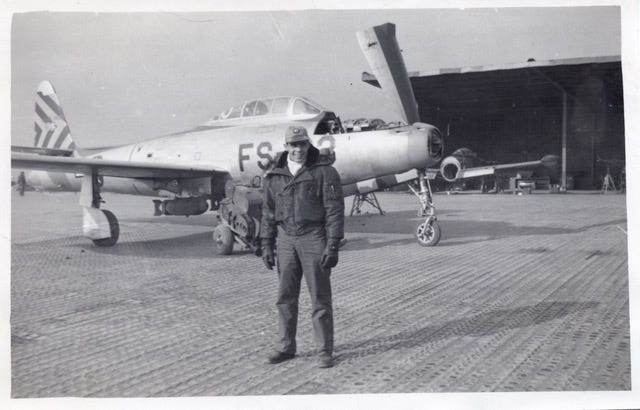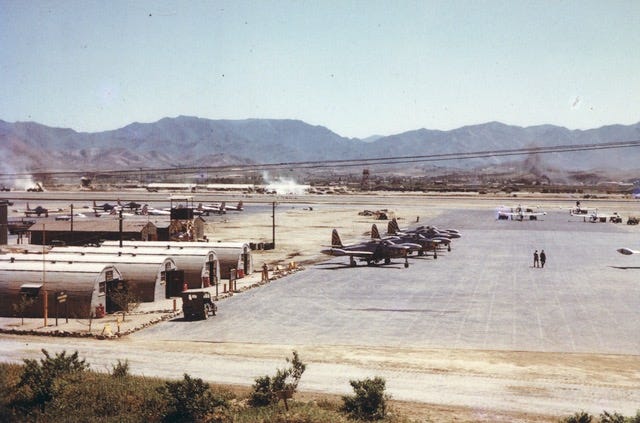First: A word of thanks for those who have been reading Ricology on a regular basis. I truly thank you from the bottom of my heart. As I struggle to convey in words how much I appreciate the support, it warms my heart to see that there are some who with regularity open the pages of Ricology and take a peek inside the recesses of my mind. Although, on the flipside, my reason for verbosity is how much I fear for our country. And while people continue to allow our national devolvement, I pray for our future, because it will take a parting of the sea to open some eyes to the deceptions taking place.
Second: This venture posting The Bandido has been a final edit of sorts, and I would appreciate any feedback whether positive or negative. My desire; a book second to none. As well, the men mentioned throughout the pages are/were giants among men: They have no equals. And yes, there were many just like them who sacrificed for the country. But what I learned about those in the pages I’ve written: They served country for their love of flying. Never mentioned was money, bonuses, or other recompense to keep them from strapping into a cockpit. I believe they would have flown into Hell and fought Satan straight on just to fly a fighter. Korea and Vietnam being two such ventures taken. Interestingly, I never heard the words: I just had to get my twenty. So, my goal: keep them front and center. Remember them! The (Bible) book of Ecclesiastes has a profound verse: There is no remembrance of men of old. And, in light of our current national state, I wonder: Were their sacrifices worth the price of admission of those willing to destroy the country and Constitution today.
Third: There are two authors on this book; myself and Chet Bogle. His words will be appearing more throughout the remainder of the book from here forward. And trust me, Chet is one of the greatest men whoever walked the face of this earth. I am truly blessed he took the time and worked tirelessly helping me get the book to this point. And yes, the unsung heroes who managed things while they were gone: Moms! We should never forget the sacrifices they made. Anyway, enjoy Chapter 4:
Interdict: (verb) “To prohibit or forbid, especially by official decree.” Interdiction: (noun) “A prohibition.”
We can view America’s political history having a cause-and-effect impact. So, from the Lost Colony at Roanoke through today, always think agenda. And looking back, both world wars started and ended politically, while the fighting was done militarily. The uniforms managed the war and did not play politics … just yet.
World War II and indiscriminate bombing produced Curtis LeMay, who became the leader of SAC (strategic air command). With an uncanny ability, he shortened the war in Europe, then transferred to the Pacific Theater. There, he brutally brought Japan to its knees. After the war, he envisioned ideas, launching the Air Force. And when budget constraints stretched the service, he improvised. But with a lack of political shrewdness and loquaciousness, his philosophy regarding war was his Achilles heel. Lemay always pushed an all-out fight (no quarter), including nukes.
Plus, politics were changing. After literally and politically dropping two nukes on Japan, nuclear war became a last resort – unthinkable, making the new war of the future - prolonged fighting with ROEs (rules of engagement) the new normal. Service member attrition; only a number. In time, LeMay was promoted to Joint Chiefs of Staff (Air Force) but would not enjoy his tenure. An inability to play politics killed his dream of having a supersonic bomber on the tarmacs. Then, after he retired, the idea of politics drew him into running for vice president. Vexingly, he teamed up with George Wallace in the 1968 presidential race on a third-party ticket. Announcing his decision to run, he veered into all-out war and nuclear attack. Within minutes, he nuked any aspiration of office, and KIA (killed in action) his political career.
Although, on the world stage, Korea became the first war where Washington entertained all out political warfare, and politicians, not generals, would direct. Also, the World War II hero, Gen. Douglas MacArthur, would pay a heavy price. The Korean War was politics, plain and simple, and military brass fought in the manner D.C. wanted. Especially if they wanted to keep their jobs. Then, after Russia unleashed atomic power, the defacto race of two superpowers vying for world dominance solidified. The United States set up bases and propped up governments around the world to control communisms spread while neglecting Korea. After supporting a corrupt party leader, the race to win China had failed, and the country went communist. Hopefully, not the peninsula. Being split at the 38th Parallel, the country favored a communist North while a contingent of US military personnel acting as advisors assisted the South. On June 25, 1950, with the backing of Russia for a small, limited, let’s see what they’ve got engagement, North Korea invaded the South with a full-fledged attack.
And having taken a political beating at home due to the loss of China, Truman gave MacArthur the reigns to repulse: push the offensive back. Occupy the North. In the process, on September 15, 1950, MacArthur had a decisive victory against North Korea with the Inchon landings. Truman though, crossed his fingers, hoping Russia and China would keep their military might out, begging: Did anybody really think they would just idly sit while decisions of complete control were underway? As MacArthur inched closer to engulfing the peninsula, China slammed the brakes on his advance. The North Korean Army was decimated, the United States: Too close for China’s comfort.
On November 28, 1950, China attacked across the Yalu River, pushing the Americans back past the 38th Parallel before being stopped. Uncle Sam almost took the peninsula. Had China stayed out, there would not be a North/South Korea today. Maybe Truman should have crossed fingers on both hands while five countries settled in for a protracted war of attrition bombing North Korea back to the Stone Age. In between, China provided manpower and Russia supplied war materiel (and personnel) to pit their combined military might against the United States. Hopefully, the best would win the overall engagement.
_____________________
Well, since the conflict started, Chico had not received orders, he instead volunteered. He’d joined to fight! In April 1952, Chico rode the rails to Camp Stoneman in California, processing directly to Korea instead of visiting family. There, he hopped a flight on a converted commercial airline to Hawaii, then Wake Island, finishing in Tokyo. At the main check-in point at Fuchu, he transferred to the 49th Fighter-Bomber Group, 8th Fighter-Bomber Squadron, known as “Black Sheep,” at K-2. The two other squadrons were the 7th and 9th.
The K stood for Korea, and the numeral 2 put the location farther south of the 38th parallel. The F-86, F-51, and T-6 were on bases closer to the frontlines. The F-84 flew interdiction and CAS (close air support). The F-86, air-to-air. The Mustang and Texan – FAC (forward air control) - but the Mustang also flew “Mosquito,” carrying armament. Searching for targets, making strikes, setting up F-84s to bomb. The T-6; for observation and marking.
Upon arrival, Chico reported to the executive officer, Major William “Bill” Georgi, who gave tours and assigned bunks. Korea was high-stakes, pilot attrition. Chico’s first night was spent thinking about some of Georgi’s words: “This guy just got shot down, so you sleep in his bed tonight, and I’ll get you another one tomorrow.” While Chico thought: “Yep! I’m as good as I think I am … right?” Although, a good thing was running into old friends. Al Plecha was in another Fighter Group (Wing). This was also an opportunity for new friendships.






Keep on going, want to hear more.